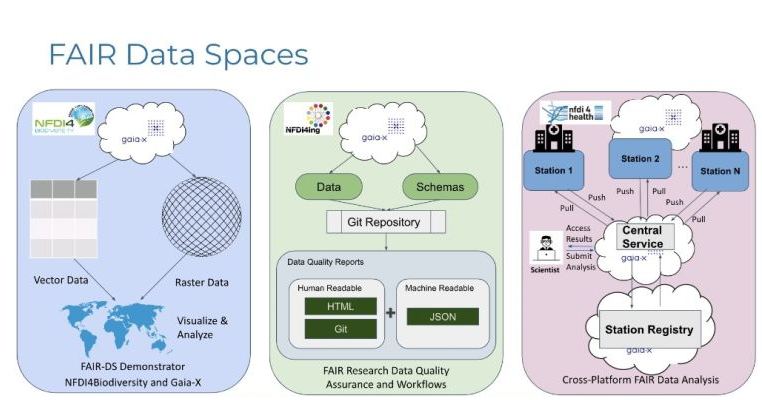The FAIR Data Spaces project aims to construct a shared cloud-based data space that serves both industrial and scientific communities by integrating the Gaia-X and Research Data Infrastructures such as NFDI and EOSC initiatives while adhering to the FAIR principles (i.e. Findable, Accessible, Interoperable, and Reusable).
By merging Gaia-X and NFDI, the project's goal is to leverage synergies between these initiatives to foster closer alignment and collaborative use of data and their infrastructures. The project supports the sovereign exchange of data across industrial and scientific sectors to enhance data accessibility on both national and European levels.
The project provides several practical applications that have already been demonstrated through existing demonstrators for data spaces in areas such as biodiversity, research data quality assurance, and cross-platform data analysis. These applications highlight the project’s capacity to create value and enhance innovation across diverse industries and research fields and showcase the practical benefits of a unified data infrastructure.
Discover more about the FAIR Data Spaces project at www.nfdi.de/fair-data-spaces

